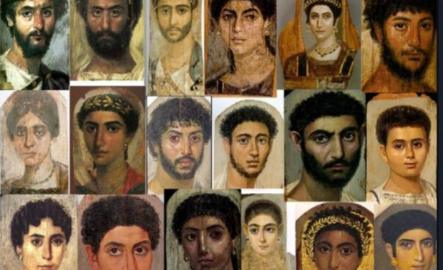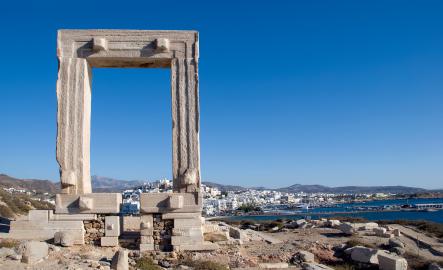About the Classical Civilizations Minor
As a Classical civilizations minor, students develop an interdisciplinary understanding
of Classical Greek and Roman material, intellectual and cultural traditions that have
shaped Western systems and values.
A Classical Civilizations Minor offers a vital perspective on the breadth of human
history, spanning from the 16th century BCE to the 5th century CE. Examining connections
between Europe, Asia and Africa and their enduring impact, especially in postclassical
receptions, provides valuable insights for addressing 21st-century challenges. This
minor cultivates critical thinking skills and a deep understanding of historical patterns,
equipping individuals to navigate the complexities of our interconnected world and
make informed decisions in the present and future.

Students must be pursuing an undergraduate degree program to participate in the classic civilizations minor. At least 12 credit hours from the minor program cannot be counted toward a College of Arts and Sciences major. However, courses over this 12 credit hour requirement may be double counted toward a major program and the classics minor.

What can you do with a Classical Civilizations Minor?
A Classical Civilizations Minor is excellent preparation for rigorous professional programs in anthropology, archaeology, education, history, law, medical sciences, public policy or classics.
Here are some of the job titles that UW Classics and modern language graduates have held:
- Modern Language Department Head
- Archaeologist
- International Programs Coordinator
- Teacher
- Archaeological Field Technician
- Research Lab Technician
- Grant Manager
- Program Manager
- Freelance Writer
- Academic Advisor
- Volunteer Coordinator
- Creative Producer
- Field Director
- Cartographer
A classical civilizations minor can open doors to a wide range of careers that value critical thinking, analytical skills and cultural knowledge. You’ll be prepared for roles in fields like education, law, publishing, museums, public history, government and international relations. It’s also a great foundation for graduate study in the humanities, archaeology, theology or ancient history. Paired with other majors, it can strengthen your resume for careers in writing, communications, nonprofit work and cultural resource management.
In the classical civilizations minor, you study the history, literature, art, philosophy and cultures of ancient Greece and Rome. Coursework often includes mythology, epic poetry, classical drama, ancient philosophy and the political and social structures of classical societies. Some programs also offer courses in Latin or ancient Greek, though language study isn’t always required. This minor helps you explore how classical ideas have shaped the modern world while developing strong skills in reading, writing and critical analysis.
- University of Colorado at Boulder
- Brown University
- Portland State University
- University of California-Berkeley
- California State University-Long Beach
- University of California-Los Angeles
- University of Missouri
- University of Wyoming
Look Inside UW's Art Museum
If you're minoring in classical civilizations, the University of Wyoming Art Museum is the perfect place to bring your studies to life. With its “Museum as a Classroom” approach, you’ll get to connect what you’re learning about ancient Greece and Rome with real art and artifacts. The museum regularly features exhibitions and events, like classical film nights and dramatic readings, that tie directly into your coursework. It’s a hands-on, creative way to dive deeper into ancient cultures and share your passion with the campus community.
"By this program and my magistra Laura De Lozier, I learned so much. I learned of the deeper meanings behind the stories I read growing up. I learned of the Greek and Roman worlds and through them our own. I learned of the greatest philosophers, plays, myths, statesmen, literary works and countless more ideas and lessons I could not list. I learned about myself perhaps most of all. If you read these words then I implore you, seek out this program, this history, this legacy, in whatever way you can. These ideas, these people, these stories, they don't just deserve to be passed down and remembered, but in fact it is our great honor and privilege to receive such. I once again thank Laura De Lozier and the rest of the staff, faculty, and my fellow students who made this program possible. Khairete."
- Matthew A. Giarusso


